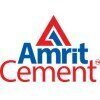Filter interviews by
Jyoti Plastic Works Interview Questions and Answers
8 Interview questions
Production preparedness refers to the state of readiness of a production process to meet demand efficiently and effectively.
Production preparedness involves having all necessary resources, such as materials, equipment, and manpower, in place to meet production targets.
It also includes having contingency plans in case of unexpected disruptions in the production process.
Regular maintenance of equipment and machinery...
I have strong analytical skills, proficiency in data analysis tools, and experience in conducting research.
Strong analytical skills
Proficiency in data analysis tools (e.g. Python, R, SQL)
Experience in conducting research (e.g. designing surveys, collecting and analyzing data)
Ability to interpret and present data findings
Attention to detail and accuracy in data analysis
Edm stands for Electrical Discharge Machining, a process of shaping hard metals using electrical sparks.
Edm uses electrical sparks to erode metal and create a desired shape
It is commonly used in the manufacturing of aerospace and medical components
Edm can be performed using wire or sinker machines
The process is highly precise and can create complex shapes with tight tolerances
The density of ABS (Acrylonitrile Butadiene Styrene) is typically around 1.04 g/cm³.
ABS is a common thermoplastic polymer used in various industries.
The density of ABS can vary slightly depending on the specific formulation and additives.
For example, ABS with higher levels of butadiene tends to have a lower density.
The density of ABS is important to consider in applications where weight and volume are factors, suc...
The density of PP (Polypropylene) is approximately 0.9 grams per cubic centimeter.
PP has a relatively low density compared to other plastics.
The density of PP can vary slightly depending on the specific grade and manufacturing process.
For example, a common grade of PP has a density of around 0.9 g/cm³.
The density of PP is lower than that of materials like PVC (polyvinyl chloride) or HDPE (high-density polyethylene...
Designing products for molds involves considering the mold material, part geometry, and production volume.
Determine the mold material based on the product material and production volume
Consider part geometry and draft angles to ensure easy release from the mold
Design for uniform wall thickness to prevent warping and sink marks
Add fillets and radii to reduce stress concentrations and improve moldability
Use simulati...
Unethical work practices like not paying minimum wages can lead to exploitation of workers and legal consequences.
Not paying minimum wages is a violation of labor laws and can result in legal action.
It can lead to exploitation of workers who are not fairly compensated for their work.
Companies engaging in such practices may face backlash from the public and damage to their reputation.
Ensuring fair wages is essentia...
Types of maintenance include preventive, corrective, predictive, and proactive maintenance.
Preventive maintenance involves regular inspections and maintenance to prevent breakdowns (e.g. changing oil in a car)
Corrective maintenance is performed after a failure occurs to restore equipment to working condition (e.g. replacing a broken part)
Predictive maintenance uses data and analytics to predict when maintenance is...
Jyoti Plastic Works Interview Experiences
8 interviews found
I applied via Recruitment Consulltant and was interviewed in Jun 2024. There were 3 interview rounds.
(4 Questions)
- Q1. No policies are aligned with labour laws. Violating Company Act. Paying employees salary on their wife's name to cheat and to reduce income tax.
- Q2. Unethical work practices as not paying minimum wages to people.
- Ans.
Unethical work practices like not paying minimum wages can lead to exploitation of workers and legal consequences.
Not paying minimum wages is a violation of labor laws and can result in legal action.
It can lead to exploitation of workers who are not fairly compensated for their work.
Companies engaging in such practices may face backlash from the public and damage to their reputation.
Ensuring fair wages is essential for...
- Q3. High Attrition culture as can expect anytime to get fired.
- Q4. No one there to listen your problem if you try. If tried then you will get fired.
(1 Question)
- Q1. Micro managing management
(1 Question)
- Q1. Toxic culture with micro managing management.
- Ans.
Toxic culture with micro managing management can lead to low morale and decreased productivity.
Toxic culture can create a negative work environment where employees feel stressed and demotivated.
Micro managing management can lead to employees feeling micromanaged and not trusted to do their jobs effectively.
This combination can result in high turnover rates, decreased productivity, and overall poor company performance.
Interview Preparation Tips
I applied via Referral and was interviewed in Mar 2024. There were 2 interview rounds.
(2 Questions)
- Q1. What was the company
- Q2. What is production prepared
- Ans.
Production preparedness refers to the state of readiness of a production process to meet demand efficiently and effectively.
Production preparedness involves having all necessary resources, such as materials, equipment, and manpower, in place to meet production targets.
It also includes having contingency plans in case of unexpected disruptions in the production process.
Regular maintenance of equipment and machinery is e...
(2 Questions)
- Q1. I have 4year experience
- Q2. I have Shift supervisor
Skills evaluated in this interview
I applied via Approached by Company and was interviewed in Aug 2023. There were 2 interview rounds.
(2 Questions)
- Q1. Why do you want to switch?
- Q2. Do you have previous experience in data mining?
(3 Questions)
- Q1. What relevent skills do you have?
- Ans.
I have strong analytical skills, proficiency in data analysis tools, and experience in conducting research.
Strong analytical skills
Proficiency in data analysis tools (e.g. Python, R, SQL)
Experience in conducting research (e.g. designing surveys, collecting and analyzing data)
Ability to interpret and present data findings
Attention to detail and accuracy in data analysis
- Q2. Why do you want to join our company
- Q3. What is your salary expectation?
Interview Preparation Tips
I appeared for an interview before Apr 2024, where I was asked the following questions.
- Q1. They asked about my current and expected ctc
- Q2. To join on immediate basis
I applied via Referral
(1 Question)
- Q1. 1) Types of maintenance
- Ans.
Types of maintenance include preventive, corrective, predictive, and proactive maintenance.
Preventive maintenance involves regular inspections and maintenance to prevent breakdowns (e.g. changing oil in a car)
Corrective maintenance is performed after a failure occurs to restore equipment to working condition (e.g. replacing a broken part)
Predictive maintenance uses data and analytics to predict when maintenance is need...
I applied via Walk-in and was interviewed before Oct 2022. There were 3 interview rounds.

(1 Question)
- Q1. Face grinding machine and angle grinder and drilling machine and drilling for tapping size
(1 Question)
- Q1. Question about previous company
Interview Preparation Tips
I applied via Naukri.com and was interviewed in Apr 2021. There were 3 interview rounds.
Interview Questionnaire
1 Question
- Q1. Ask for process of purchase, about LC process, and Import related process
Interview Preparation Tips
I applied via Referral and was interviewed before Jan 2020. There were 5 interview rounds.
Interview Questionnaire
4 Questions
- Q1. 1. What is density of PP?
- Ans.
The density of PP (Polypropylene) is approximately 0.9 grams per cubic centimeter.
PP has a relatively low density compared to other plastics.
The density of PP can vary slightly depending on the specific grade and manufacturing process.
For example, a common grade of PP has a density of around 0.9 g/cm³.
The density of PP is lower than that of materials like PVC (polyvinyl chloride) or HDPE (high-density polyethylene).
- Q2. 2. How do you define Edm?
- Ans.
Edm stands for Electrical Discharge Machining, a process of shaping hard metals using electrical sparks.
Edm uses electrical sparks to erode metal and create a desired shape
It is commonly used in the manufacturing of aerospace and medical components
Edm can be performed using wire or sinker machines
The process is highly precise and can create complex shapes with tight tolerances
- Q3. 3. What is density of ABS?
- Ans.
The density of ABS (Acrylonitrile Butadiene Styrene) is typically around 1.04 g/cm³.
ABS is a common thermoplastic polymer used in various industries.
The density of ABS can vary slightly depending on the specific formulation and additives.
For example, ABS with higher levels of butadiene tends to have a lower density.
The density of ABS is important to consider in applications where weight and volume are factors, such as ...
- Q4. 4. How do you design given products mold?
- Ans.
Designing products for molds involves considering the mold material, part geometry, and production volume.
Determine the mold material based on the product material and production volume
Consider part geometry and draft angles to ensure easy release from the mold
Design for uniform wall thickness to prevent warping and sink marks
Add fillets and radii to reduce stress concentrations and improve moldability
Use simulation so...
Interview Preparation Tips
Skills evaluated in this interview
Top trending discussions






Interview questions from similar companies

I appeared for an interview in Dec 2016.
Interview Questionnaire
1 Question
- Q1. How you will work under a supervisor.
- Ans.
I will communicate effectively, follow instructions, seek feedback, and collaborate with my supervisor.
Communicate regularly with supervisor to provide updates on progress and ask for clarification when needed
Follow instructions carefully and ask for help if unsure about a task
Seek feedback on my work to improve and grow professionally
Collaborate with supervisor and team members to achieve project goals
Provide suggesti...
Interview Preparation Tips
Experience: I got selected for next round.
Tips: Do not loses hope.
Duration: 1 hour
Total Questions: 10
Round: Technical + HR Interview
Experience: It was nice experience.
Tips: Do not loses hope.
Skills: Technical Analysis, Managing People
College Name: IIT Kharagpur

I applied via Naukri.com and was interviewed in Jan 2021. There were 3 interview rounds.
Interview Questionnaire
1 Question
- Q1. Tell me about your self?
Interview Preparation Tips
Jyoti Plastic Works Interview FAQs
Tell us how to improve this page.
Jyoti Plastic Works Interviews By Designations
- Jyoti Plastic Works Production Supervisor Interview Questions
- Jyoti Plastic Works Tool Room Engineer Trainee Interview Questions
- Jyoti Plastic Works Maintenance Engineer Interview Questions
- Jyoti Plastic Works Data Researcher Interview Questions
- Jyoti Plastic Works Confidential Interview Questions
- Jyoti Plastic Works Senior Purchase Executive Interview Questions
- Jyoti Plastic Works Recruitment Executive Interview Questions
- Jyoti Plastic Works Design & Development Engineer Interview Questions
- Show more
Interview Questions for Popular Designations
Overall Interview Experience Rating
based on 6 interview experiences
Difficulty level
Duration
Interview Questions from Similar Companies
Jyoti Plastic Works Reviews and Ratings
based on 46 reviews
Rating in categories
|
Junior Engineer
6
salaries
| ₹1.6 L/yr - ₹2.5 L/yr |
|
Shift Engineer
6
salaries
| ₹3.2 L/yr - ₹5 L/yr |
|
Assistant Manager
5
salaries
| ₹5.2 L/yr - ₹8.5 L/yr |
|
Design Engineer
5
salaries
| ₹3 L/yr - ₹10.5 L/yr |
|
Senior Purchase Executive
5
salaries
| ₹4.2 L/yr - ₹6 L/yr |

Hero Motors Company

Sheenlac Paints

Bajaj Motors

Knorr-Bremse
- Home >
- Interviews >
- Jyoti Plastic Works Interview Questions









